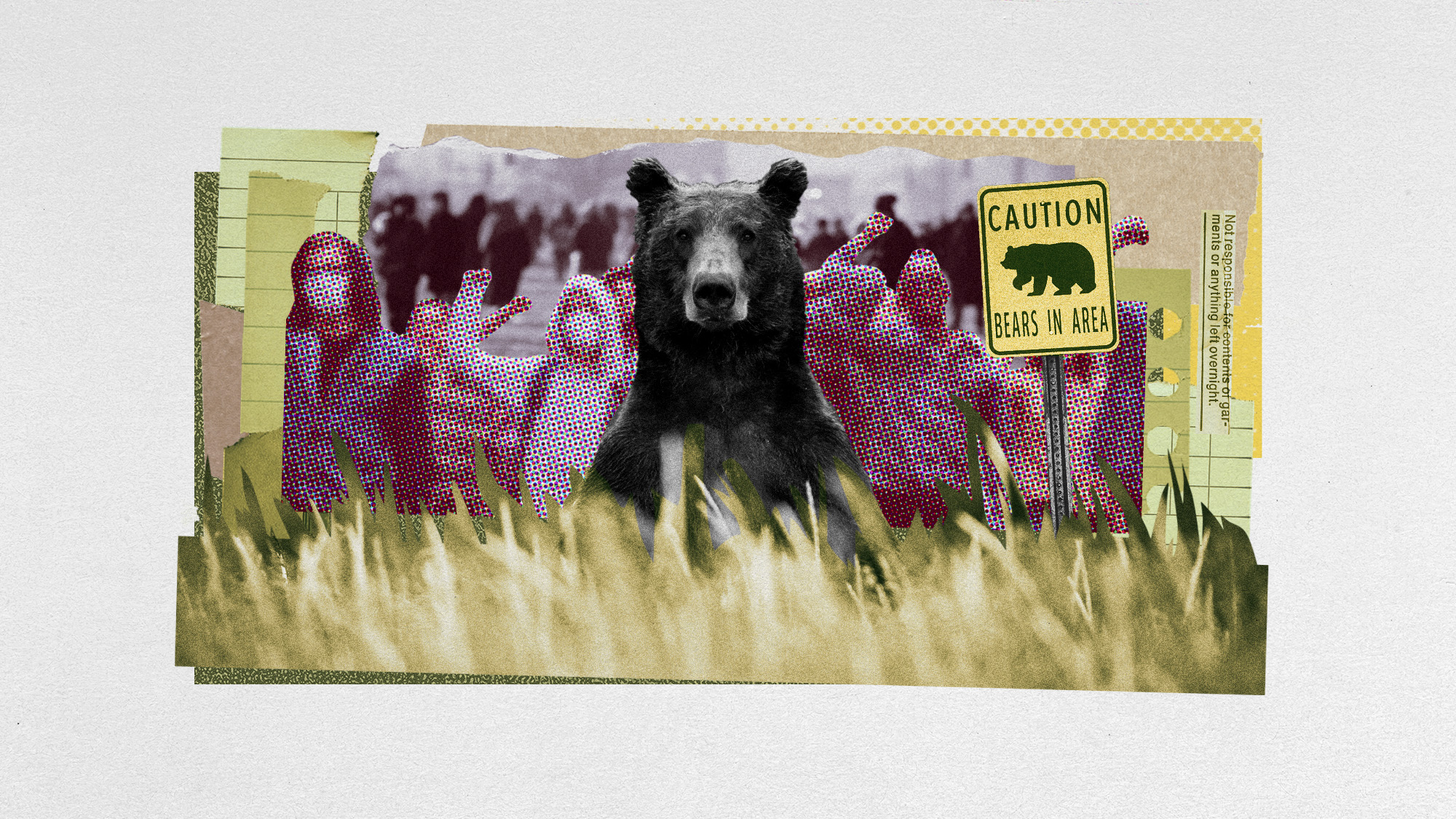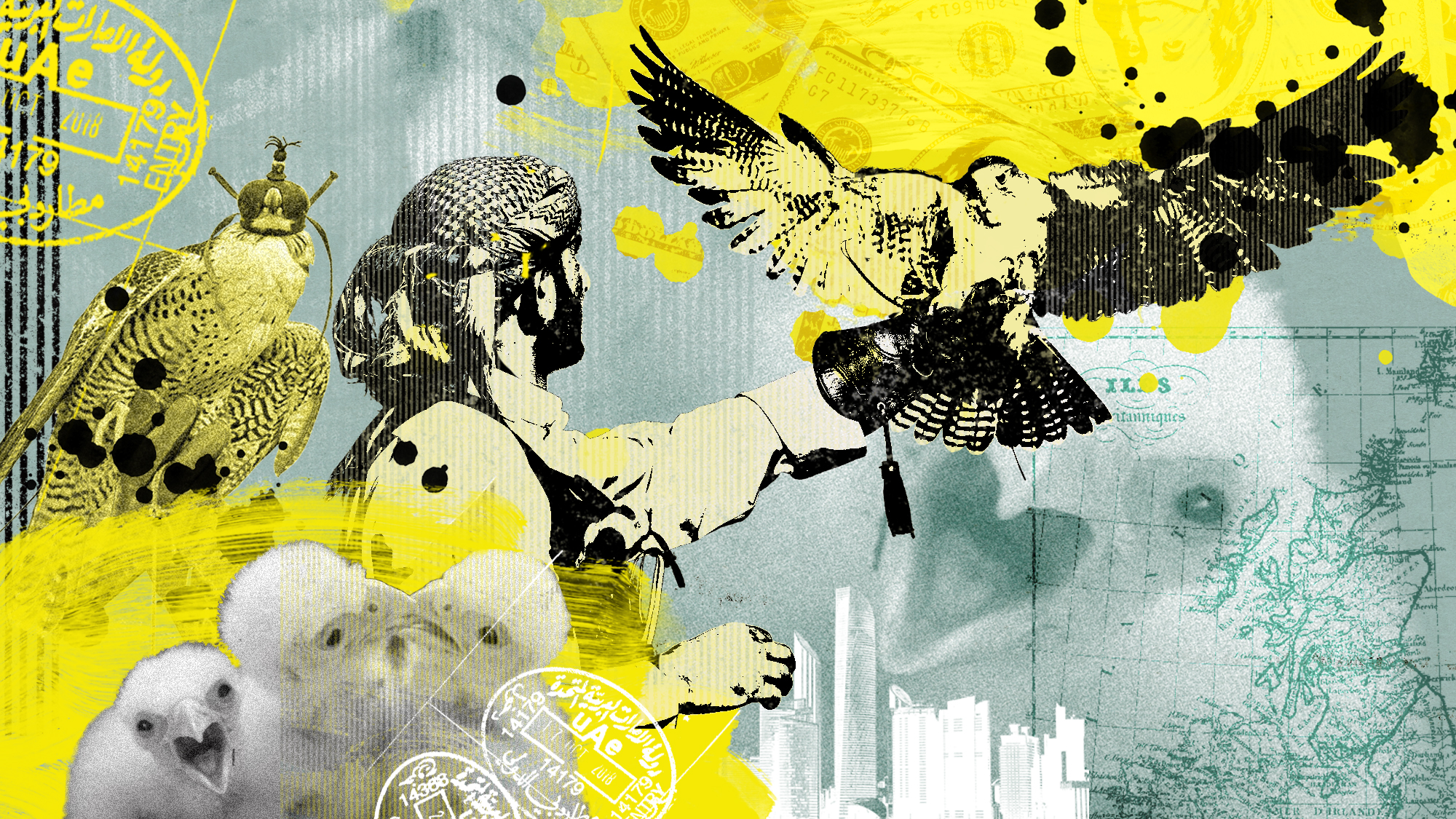Grizzly bears will be reintroduced to Washington state after years of debate
Grr, the bears are back!


A free daily email with the biggest news stories of the day – and the best features from TheWeek.com
You are now subscribed
Your newsletter sign-up was successful
Grizzly bears are returning to the North Cascades in Washington State, which has not had a grizzly sighting since 1996. The decision to repopulate the state's mountainous region came after intense debate. Some viewed it as a positive conservation effort, while others worried about the potential harm towards humans and livestock.
Growing the grizzlies
Grizzly bears were once staples of the North Cascades in Washington but "declined primarily due to direct killing by humans," said the National Park Service. Now the Park Service and the Fish and Wildlife Service have decided to "restore grizzly bears to the North Cascades ecosystem through the translocation of grizzly bears from other ecosystems in the Rocky Mountains or interior British Columbia." The species is a threatened species under the Endangered Species Act. The plan is to restore three to seven bears a year for five to 10 years in order to achieve an initial population of 25. Ultimately, the agencies aim to restore the population to 200 over the next 60 to 100 years.
The repopulation plan would designate the grizzly bears as a nonessential experimental population under the Endangered Species Act, which allows "authorities greater latitude to catch or kill bears to stop conflicts between the animals and humans" and allows "landowners in some areas to obtain a permit to kill a grizzly under specific circumstances," said Scientific American. This is especially the case if the bears pose a threat to livestock.
The Week
Escape your echo chamber. Get the facts behind the news, plus analysis from multiple perspectives.

Sign up for The Week's Free Newsletters
From our morning news briefing to a weekly Good News Newsletter, get the best of The Week delivered directly to your inbox.
From our morning news briefing to a weekly Good News Newsletter, get the best of The Week delivered directly to your inbox.
The population of grizzly bears has significantly declined since the 1800s, from approximately 50,000 to just under 2,000 today in the continental U.S. They currently occupy four of six established recovery areas in parts of Montana, Idaho, Wyoming and northeast Washington "We are going to once again see grizzly bears on the landscape, restoring an important thread in the fabric of the North Cascades," said Don Striker, the superintendent of North Cascades National Park Service Complex. There is no timeline as to when the repopulation efforts will begin.
Bearing the debate
While the federal agencies have agreed to restore the grizzlies, there was a fierce debate as to whether doing so was the right course of action. "As the monthslong process played out, debate over human-bear conflict revealed a surprising range of views about what it means to belong to an ecosystem," said Scientific American. "It also invited a fundamental question: What, exactly, were the grizzlies supposed to bring back?"
Those opposed to the decision feared for the safety of their livestock. "We already have predator issues in the state. We don't need another apex predator when we can't deal with what we have," Rachel McClure, a rancher and secretary of the Okanogan County Cattlemen's Association, said to NBC News. "We're busy dealing with wolves. We don't need to be thinking about bears." In addition, the process of repopulating the North Cascades is long and complicated. It requires "trapping, trucking and moving bears by helicopter from British Columbia or northwestern Montana," said NBC News. "As long as it's taken to get here, it's just the start," Joe Scott, the international programs associate director at Conservation Northwest, said to the source. "The actual implementation is not a slam dunk."
Others have applauded the effort to return the species to the habitat it once called home. The animals have the potential to greatly affect their ecosystem. "Bear scat would disperse seeds across the landscape. Their massive claws would turn up and aerate soil when they dig for roots and rodents," said Scientific American. The shift also has a chance to right the wrongs of generations past. "Our culture had a war on these species and we know better now, and this is a chance for us to tell a different story," Gordon Congdon, a retired orchardist who lives in Washington, said to NBC News.
A free daily email with the biggest news stories of the day – and the best features from TheWeek.com
Devika Rao has worked as a staff writer at The Week since 2022, covering science, the environment, climate and business. She previously worked as a policy associate for a nonprofit organization advocating for environmental action from a business perspective.
-
 The ‘ravenous’ demand for Cornish minerals
The ‘ravenous’ demand for Cornish mineralsUnder the Radar Growing need for critical minerals to power tech has intensified ‘appetite’ for lithium, which could be a ‘huge boon’ for local economy
-
 Why are election experts taking Trump’s midterm threats seriously?
Why are election experts taking Trump’s midterm threats seriously?IN THE SPOTLIGHT As the president muses about polling place deployments and a centralized electoral system aimed at one-party control, lawmakers are taking this administration at its word
-
 ‘Restaurateurs have become millionaires’
‘Restaurateurs have become millionaires’Instant Opinion Opinion, comment and editorials of the day
-
 Earth is rapidly approaching a ‘hothouse’ trajectory of warming
Earth is rapidly approaching a ‘hothouse’ trajectory of warmingThe explainer It may become impossible to fix
-
 The environmental cost of GLP-1s
The environmental cost of GLP-1sThe explainer Producing the drugs is a dirty process
-
 As temperatures rise, US incomes fall
As temperatures rise, US incomes fallUnder the radar Elevated temperatures are capable of affecting the entire economy
-
 Climate change could lead to a reptile ‘sexpocalypse’
Climate change could lead to a reptile ‘sexpocalypse’Under the radar The gender gap has hit the animal kingdom
-
 Why scientists want to create self-fertilizing crops
Why scientists want to create self-fertilizing cropsUnder the radar Nutrients without the negatives
-
 The former largest iceberg is turning blue. It’s a bad sign.
The former largest iceberg is turning blue. It’s a bad sign.Under the radar It is quickly melting away
-
 Why the Middle East is obsessed with falcons
Why the Middle East is obsessed with falconsUnder the Radar Popularity of the birds of prey has been ‘soaring’ despite doubts over the legality of sourcing and concerns for animal welfare
-
 How drones detected a deadly threat to Arctic whales
How drones detected a deadly threat to Arctic whalesUnder the radar Monitoring the sea in the air
